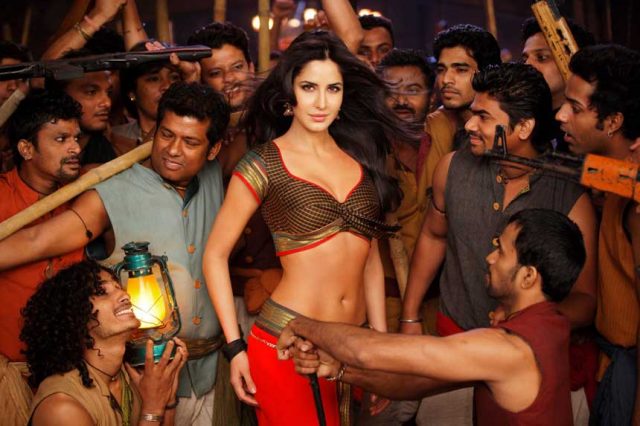FlippED is An ED Original Style wherein two bloggers come together to share their opposing or orthogonal perspectives on an interesting subject.

Just for the sake of filming a scene, any intimacy on-screen correlates to the intimacy between the actors. Conservatives could describe such behavior as promiscuity. Acting was once connected with harlotry because of the self-exposure and personal engagement with several alien men.
On-screen closeness, sexual suggestiveness, explicitness, and even nudity have been a feature of Indian cinema as times have changed. Such involvement frequently goes beyond the script’s requirements, acting as a mere tool to attract audiences, a phenomenon known as erotic capitalism.
Should it, however, be encouraged? Is the longstanding stigmatization of cinema justified? Should erotic capitalism be viewed as a weapon for sexual liberation or as a means for exploiting the actors and humiliating spectators involved? Our bloggers Paroma and Debanjali argue
Debanjali’s POV
“If women desire to be desired and gazed upon, there is nothing you or I can point a finger at.”
– Debanjali Das
Gendered performativity has defined and redefined the role of women in society. So today if a woman decides to take ownership of her body and engage in its monetary exchange, shall we point fingers at her and say she is wrong?
Bollywood has had its fair share of manipulated misrepresentation but it is also the choice of the women be it for a commercial or metaphysical condition to star in these movies. If women desire to be desired and gazed upon, there is nothing you or I can point a finger at.
In the cinematic realm, we should also think about realistic representation which will produce an alienation effect upon the audience in the theaters. Today if we show a woman coming from a marginalised section involved in the sexual transaction due to her economic conditions, should we degrade her?
If the particular woman is making her livelihood and takes pleasure from her pursuits it should be represented as such. If we forcibly put the macrostructural feminism ideals, both the essence of mise-en-scene and the character disappears.
The quirky girl syndrome in the movies where “the woman is not like others”, is liked by male heroes. This notion itself degrades the passivity in women, the woman who desires to take ownership of her sexuality by representing her body in a certain way.
Thus every gaze, every substantial representation will always be questionable as to whether it suffices the women as subject or object. But if women in Bollywood like to dance to item songs, and wear “revealing clothes” according to standard prototype, we should not have any say on what she wants to be.
Also Read: OnlyFans Restricting Sexually Explicit Content Is Problematic And It Needs Addressing
Paroma’s POV
“A woman has very little say and has to appear on screen as desired by the men who enjoy an upperhand, almost owning her sexuality, reducing her to a mere object to be displayed, devoured and fondled with!”
– Paroma Dey Sarkar
Before entering the debate, let us look at a few famous instances where Bollywood portrayed nudity. Remember the famous bathing scene from the film, Ram Teri Ganga Maili that exposed lead actress Mandakini’s bare nipples?
Or how actress Seema Biswas was stripped from top to toe to replicate the plight of the Bandit Queen? Keeping aside their cinematic significance which will be dealt with laterwards, the most common aspect of both the films was that they were directed by men.
According to the findings of the first-ever UN-sponsored worldwide assessment of female characters in popular films around the world, the number of female directors, writers and producers is far low compared to their male counterparts. Women are also twice as likely as men to be seen in sexually provocative clothing, partially or completely naked, skinny, and described as attractive in films.
This clearly indicates the male dominance that prevails when capitalizing on a woman’s sexuality in cinema. A woman has very little say and has to appear on screen as desired by the men who enjoy an upper hand, almost owning her sexuality, reducing her to a mere object to be displayed, devoured and fondled with!
Now talking about the cinematic significance of the abovementioned scenes. Many might argue that nudity is necessary to justify the script as in the case of Bandit Queen where the very purpose of the scene was to make the audience uncomfortable by making them visualize the plight of the protagonist.
However, the same could not be said about the former scene of Ram Teri Ganga Maili, it was not so. It shows a lithe and lovely young woman bathing under a water fountain in broad daylight while singing gleefully.
The thin wet cloth wrapped around her body revealed her breasts and nipples for the audience to derive voyeuristic pleasure out of it. The scene was really insignificant to the script and was shot purely for the delivery of entertainment.
Making a woman expose her private parts in front of a male crew to entertain another set of male audiences whilst at the same time romanticizing voyeuristic activities, is definitely problematic! And even so when they come from highly influential people like Raj Kapoor (the director) leaving little scope for a newcomer actress to oppose the idea even if she feels exploited.
Which one of the 2 sides do you agree with the most? Let us know in the comments down below!
Image Credits: Google Images
Feature Image designed by Saudamini Seth
Source: Authors’ own opinions
Find The Blogger: @ParomaDey, @debanjalidas15
This post is tagged under: Cinema, Indian Cinema, Bollywood, erotic capitalism, nudity, sex, sexual explicitness, voyeurism, sexual explicitness, Indian Censor board, item songs, Bandit Queen, Seema Biswas, Shekhar Kapur, Ram Teri Ganga Maili, Mandakini, Raj Kapoor
We do not hold any right/copyright over any of the images used. These have been taken from Google. In case of credits or removal, the owner may kindly mail us.